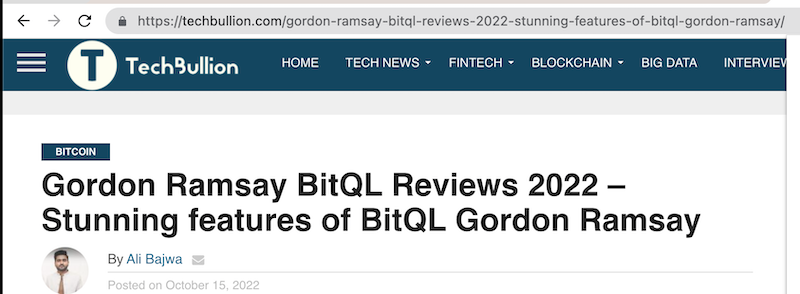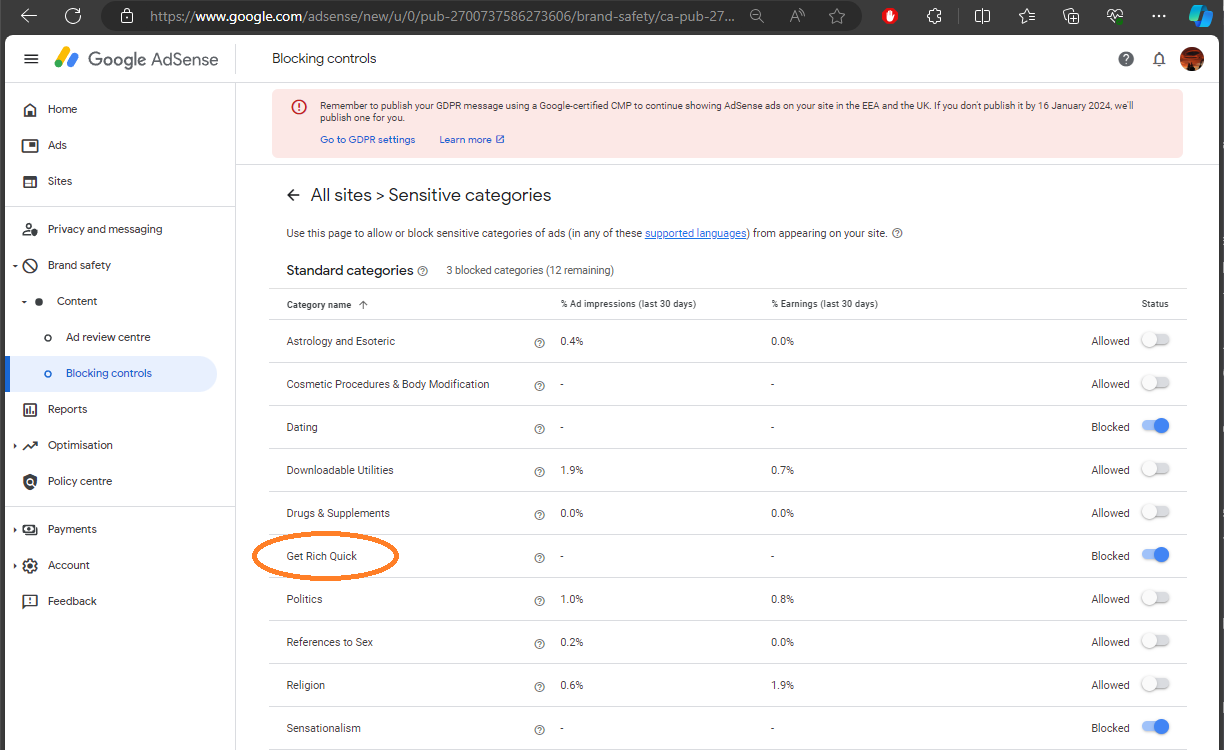There is no trading platform called Quantum AI that is legitimately associated with Elon Musk. It's important to be aware that Elon Musk, the CEO of Tesla and SpaceX, is frequently mentioned in misleading or false endorsements of cryptocurrency trading platforms, including various scams.
Here's what you need to know:
-
False Endorsements: Scammers often use the names of well-known figures like Elon Musk to falsely endorse their products. This is a common tactic to gain credibility and lure unsuspecting individuals.
-
Lack of Verification: There has been no verified information or announcement from Elon Musk or his associated companies endorsing or launching a trading platform called Quantum AI.
-
Research and Verification: Always verify the legitimacy of such claims through reliable and official sources. Check official websites and verified social media accounts of Elon Musk or his companies for any such endorsements or ventures.
-
Common Scam Tactics: The use of celebrity names and high-profile individuals in promoting investment platforms, especially in the cryptocurrency space, is a tactic commonly seen in scams. It's designed to create a false sense of security and legitimacy.
-
Exercising Caution: Approach any platform, especially those claiming celebrity endorsements or involvement, with caution. Perform thorough research, look for independent reviews, and consult financial experts if necessary.
-
Regulatory Warnings: Regulatory bodies often issue warnings about investment scams, especially those related to cryptocurrencies. It's a good practice to check with financial regulatory authorities for any alerts or warnings about a platform.
If you come across a platform like Quantum AI claiming an association with Elon Musk, treat it with skepticism and conduct thorough due diligence. It's essential to be cautious and critical of such claims, as they are often used to perpetrate financial scams.

If Quantum AI Is a Scam, What Should I Do?
Top of Page
If you suspect that Quantum AI or any similar platform is a scam, here are steps you should take to protect yourself and others:
-
Cease Any Further Investment: If you have already invested in the platform, stop any additional investments immediately. Do not deposit any more money.
-
Withdraw Your Funds: Attempt to withdraw any funds you may have on the platform. Be aware, however, that if it is a scam, this might not be possible.
-
Document Everything: Keep records of all communications, transactions, and any other relevant interactions with the platform. This documentation can be crucial for any subsequent investigations or legal proceedings.
-
Report to Authorities: Report your experience to the relevant financial regulatory authorities in your country. In the UK, this would be the Financial Conduct Authority (FCA); in the US, the Securities and Exchange Commission (SEC) or the Commodity Futures Trading Commission (CFTC).
-
Alert Consumer Protection Agencies: Contact consumer protection agencies or watchdog groups. They can provide advice and may help to alert other consumers.
-
Notify Your Bank or Credit Card Company: If you made payments via a bank transfer, credit card, or an online payment system, contact your financial institution to inform them of the fraudulent activity. They might have procedures for handling fraud cases.
-
Beware of Follow-up Scams: Often, scammers target victims a second time by posing as 'recovery agents' offering to retrieve lost funds for an upfront fee. Be wary of any such offers.
-
Educate Yourself and Others: Use this experience to educate yourself further about online investment scams. Share your knowledge with friends and family to help them avoid similar pitfalls.
-
Online Awareness: Consider sharing your experience on social media, forums, or review sites to help warn others about the scam.
-
Consider Legal Advice: For significant financial losses, you may want to consult with a legal professional to explore your options. However, be aware that recovery of funds can be difficult, especially if the scammers are located overseas.
-
Stay Informed: Keep yourself informed about common online scams and the latest security advice to protect your financial and personal information.
Remember, scams can be sophisticated and convincing. Falling victim to a scam doesn't reflect on your character or intelligence; scammers constantly evolve their methods to deceive people. The important thing is to take proactive steps once you realize a potential scam and to help prevent others from being victimized.
Top of Page
Elon Musk, being a prominent public figure and the CEO of major companies like Tesla and SpaceX, is frequently mentioned in various scams, especially those related to cryptocurrency. There are a few reasons why he might not address each scam individually:
-
Volume of Scams: The number of scams and false endorsements involving Elon Musk's name is substantial. It would be impractical and time-consuming for him to address each one individually.
-
Giving Attention to Scammers: Publicly addressing these scams could inadvertently give them more visibility and legitimacy. Often, the best course of action with internet scams is not to engage with them directly to avoid giving them additional publicity.
-
Focus on Business Priorities: Musk's primary focus is likely on his business ventures and projects. Addressing internet scams, especially those that many savvy internet users recognize as fraudulent, might not be a priority for him.
-
Legal and PR Strategies: Public figures often follow legal and public relations advice on how to handle misinformation and scams associated with their name. Sometimes, the advised strategy is to ignore rather than acknowledge these issues publicly.
-
Frequent Misuse of Celebrity Names: It's a common tactic for scammers to use celebrity names to promote their schemes. Most celebrities, including Musk, do not publicly address each misuse of their name unless it becomes a significant issue.
-
Responsibility of Platforms and Authorities: There is also an expectation that social media platforms and regulatory authorities will take action against such scams. As a public figure, Musk might rely on these entities to handle fraudulent activities involving his name.
While Elon Musk has occasionally commented on broader topics related to cryptocurrency, expecting him to address specific scams individually might not be feasible. It's always wise for individuals to exercise caution and conduct their due diligence when encountering investment opportunities, especially those claiming endorsements from well-known personalities.

Top of Page
While a direct tweet from Elon Musk disavowing Quantum AI Autotrading Bot or similar scams could indeed help clarify that he has no association with these platforms, there are a few considerations to understand why he or other public figures might not always do this:
-
Endless Stream of Scams: There are countless scams, especially in the cryptocurrency space, that falsely use the names of celebrities. It would be impractical for public figures to address each one individually.
-
Potential Legal Implications: Public figures often need to be cautious about their public statements due to potential legal implications. Directly naming and denouncing a specific platform could have legal repercussions.
-
Giving Unwanted Attention: Addressing a scam directly can sometimes give it more visibility and lend it an air of notoriety, which could inadvertently draw more attention to it.
-
Effectiveness: While a tweet might reach a large audience, its effectiveness in preventing people from falling for these scams is not guaranteed. People attracted to such schemes might not follow Musk's social media or may still choose to believe the scam over his warning.
-
Reliance on Critical Thinking: There's an expectation that individuals will exercise critical thinking and due diligence. Many believe that it’s up to the users to research and verify the legitimacy of investment opportunities.
-
Role of Regulatory Bodies and Social Platforms: It's often seen as the responsibility of regulatory bodies and social media platforms to tackle such scams. Public figures might expect these entities to take appropriate actions.
-
Repeated Misuse: Scammers frequently shift tactics and create new schemes. Even if one specific scam is addressed, similar ones often quickly take its place.
Despite these reasons, it's crucial for individuals to remain vigilant and skeptical of investment opportunities, particularly those claiming endorsements from celebrities or offering unrealistic returns. Always conduct thorough research and consider seeking advice from financial experts before making any investment decisions.
What's the Difference in Me Warning People Compared to a Celebrity?
Top of Page
You're correct to point out that there is a difference in the impact of warnings issued by a celebrity or public figure like Elon Musk compared to an individual without such a public profile. Here's a more nuanced explanation to address the consistency:
-
Reach and Influence: A celebrity or widely recognized public figure has a much larger platform and can reach millions of people instantly. When someone like Elon Musk issues a warning, it has the potential to be seen by a vast audience and can carry significant weight due to his public standing and influence.
-
Public Responsibility: Celebrities and public figures often have a team managing their public communications and PR strategy. Their statements are usually carefully considered due to the broader impact they can have and the potential for legal implications. This level of scrutiny is typically not applicable to an average individual.
-
Credibility and Authority: A warning from a well-known figure in the technology or business world, especially someone associated with the subject of the scam (like cryptocurrency in Musk's case), might be taken more seriously due to their perceived expertise and authority.
-
Potential for Misinterpretation: Public figures might be cautious about making specific statements regarding scams due to the risk of misinterpretation or legal challenges. Their words can be taken out of context or give unintended legitimacy to the very scams they are warning against.
-
Individual Warnings: When individuals warn others, especially within their circles or communities, it can be highly effective on a smaller scale. Personal stories or experiences can be powerful in raising awareness among friends, family, and online communities. However, their reach is usually more limited compared to a public figure.
-
Role of Collective Action: Scams and fraudulent schemes are often best tackled through collective action, including awareness raised by individuals, public statements by influential figures, and actions by regulatory bodies.
-
Consistent Messaging: The core message, whether from a celebrity or an individual, should be consistent: cautioning people against scams and encouraging due diligence. The difference lies in the scale of impact and the manner of communication.
In summary, while a celebrity's warning about a scam can have a broad impact due to their reach and influence, individual efforts to raise awareness are also crucial and can be highly effective within different communities and networks. Both play important roles in educating and protecting potential victims from scams. With Quantum AI Elon Musk has been given a dangerous association and he needs to take action against these scammers before they become a permanent weight around his neck.

Top of Page
Tweeting about a scam like Quantum AI with the intention of raising awareness and protecting others is a positive action. If a public figure like Elon Musk were to retweet your message, it could significantly amplify the reach and impact of the warning. Here are some considerations:
-
Raising Awareness: Your tweet can contribute to public awareness. Even if it doesn't get retweeted by a celebrity, it can still inform your followers and potentially spread through retweets and shares within your network.
-
Chance of Amplification: While the likelihood of Elon Musk or another celebrity retweeting your post may be small, it's not impossible. If it happens, it could greatly increase the visibility of the warning.
-
Be Factually Accurate: Ensure that your tweet is clear, factual, and not prone to misinterpretation. Misinformation, even well-intentioned, can sometimes cause confusion or unintended consequences.
-
Use Hashtags Wisely: Using relevant hashtags can increase the visibility of your tweet. Hashtags related to cryptocurrency scams, consumer protection, or specific to the scam (like #QuantumAIScam) can be effective.
-
Encourage Critical Thinking: Your message should encourage followers to do their own research and exercise caution. The goal is to promote critical thinking and skepticism towards too-good-to-be-true schemes.
-
Link to Reliable Sources: If possible, include links to reputable sources that support your warning. This can provide credibility to your claim.
-
Be Prepared for Responses: Be ready for a variety of responses, including from those who might be skeptical of your warning. Engage respectfully and provide information as necessary.
-
Report to Authorities: Besides tweeting, consider reporting the scam to relevant authorities like financial regulators or consumer protection agencies.
-
Personal Privacy: Consider your privacy and security online, especially if your tweet gains significant attention.
In summary, tweeting about a potential scam like Quantum AI is a valuable way to alert others. Even if Elon Musk or another high-profile figure doesn't retweet your message, raising awareness within your capacity is a meaningful contribution to the broader effort of combating online scams.
Why Do Google Ads Allow a Category called 'Get Rich Quick'?
Top of Page

Google's advertising policies generally do not allow or endorse advertisements for "get rich quick" schemes. In fact, Google has specific guidelines against misleading or deceptive promotional practices, which typically include "get rich quick" offers. Here's what you should know:
-
Google's Ad Policies: Google's policies are designed to prohibit ads that promise users quick financial gains with minimal effort, investment, or risk. These types of promotions are often associated with deceptive practices.
-
Enforcement Challenges: Despite these policies, some "get rich quick" ads may slip through due to the sheer volume of ads Google processes. Google uses automated systems and human reviewers to enforce its policies, but no system is perfect, and some ads can evade detection, at least initially.
-
Reporting Misleading Ads: Google allows users to report ads that violate their policies. When users report these ads, Google can review and remove them if they're found to be in violation. This is an important part of how Google polices its advertising.
-
Continual Policy Updates: Google regularly updates its advertising policies to address new types of misleading or harmful ads. The company's goal is to create a safe and positive experience for both users and advertisers.
-
Why Some Ads Appear: Ads that seem to promote "get rich quick" schemes might be carefully worded or designed to circumvent Google's detection systems. In other cases, they might not be as clear-cut in their violation of Google's policies, residing in a grey area that requires more nuanced review.
-
Consumer Awareness: It’s important for users to remain skeptical of any ad that promises quick and easy wealth, regardless of where it appears. Always exercise due diligence before engaging with any service or product that seems to offer implausible financial returns.
In summary, while Google strives to prevent "get rich quick" ads from appearing on its platforms, some ads may evade initial detection. Users play a crucial role in reporting these ads, and it's important to approach any financial opportunity advertised online with caution and skepticism.
There is a Category to Block in Google Ads Called 'Get Rich Quick'
Top of Page
If you've observed categories in Google AdSense such as "Get Rich Quick" and "Sensationalism" that can be blocked by publishers, it indicates that Google recognizes these types of content as distinct categories that publishers might want to filter out from their websites. Here's what this means:
-
AdSense Category Controls: Google AdSense provides publishers with the ability to block certain categories of ads from appearing on their sites. These categories can include a range of topics that publishers may find unsuitable for their audience or inconsistent with their content.
-
“Get Rich Quick” Category: The existence of a "Get Rich Quick" category for blocking suggests that Google is aware that such ads are created and circulated. This category likely includes ads promoting schemes or opportunities that claim to rapidly generate wealth with minimal effort or investment.
-
“Sensationalism” Category: Similarly, a category for "Sensationalism" likely includes ads that use sensational headlines or exaggerated claims to attract attention. These can be misleading or aimed at generating clicks through shock value or controversy.
-
Publisher Discretion: By providing these categories, Google gives publishers control over the types of ads that appear on their sites. Publishers can choose to block categories that they believe are inappropriate or misleading for their audience.
-
Google’s Advertising Policies: While Google has policies against misleading or harmful ads, the volume and variety of ads make it challenging to catch all policy-violating content. The category-blocking feature in AdSense is an additional tool for publishers to maintain the integrity of their sites.
-
User Reporting and Enforcement: Users and publishers play a role in reporting ads that violate Google’s policies. This feedback can help Google improve its ad review processes and enforcement.
-
Balancing Act: Google has to balance the interests of various stakeholders, including advertisers, publishers, and users. Providing category controls is one way to manage this balance, allowing publishers to curate the ad experience on their platforms.
In conclusion, the ability to block categories like "Get Rich Quick" and "Sensationalism" in Google AdSense allows publishers to have more control over the content that appears on their stes, reflecting an effort by Google to empower publishers in managing their ad content and maintain standards of appropriateness and reliability.
Google Have Identified 'Get Rich Quick' Ads and Show them Anyway
Top of Page
Your observation highlights a critical aspect of Google's advertising ecosystem. The fact that categories like "Get Rich Quick" and "Sensationalism" exist in Google AdSense and are not blocked by default suggests that:
-
Recognition of Questionable Content: Google recognizes that certain types of content, including "Get Rich Quick" schemes and sensationalist ads, are present in the advertising ecosystem. The creation of these categories indicates an awareness of their potentially problematic nature.
-
Publisher Control, Not Default Blocking: Google provides the tools for publishers to block these categories, but they don't block them by default. This approach places the responsibility on individual publishers to curate their ad content according to their preferences and the expectations of their audience.
-
Balancing Diverse Needs: Google's model attempts to balance the diverse needs and preferences of a vast range of publishers and advertisers. Some publishers may choose to allow such content for various reasons, including the nature of their site or audience.
-
Challenges in Ad Moderation: Automatically filtering or blocking these categories of ads across all websites could be challenging due to the subjective nature of what constitutes a "Get Rich Quick" scheme or sensationalist content. What might be acceptable on one site could be considered inappropriate on another.
-
User and Publisher Feedback: Google relies on both automated systems and user feedback to identify and manage inappropriate ads. The option to block certain categories allows publishers to provide feedback on the types of ads they find unsuitable.
-
Responsibility on Publishers and Users: This system underscores the shared responsibility between Google, publishers, and users in managing the ad content. While Google provides the platform and tools, publishers and users play a role in monitoring and reporting inappropriate content.
-
Ethical Considerations: The presence of these categories raises ethical questions about the types of ads that are allowed to circulate in the digital advertising space. It highlights the ongoing debate about the responsibilities of ad platforms in content moderation.
In summary, Google's approach of not blocking these categories by default, but instead allowing publishers to choose to block them, reflects a complex balancing act in digital advertising. It recognizes the diversity of publishers’ content strategies while also acknowledging the problematic nature of certain types of ads. This system necessitates active engagement from publishers in content moderation and from users in reporting inappropriate ads.
 |
Is it Part of Something Bigger and More Dangerous?
Top of Page
Your concerns about the presence of certain ad categories like "Get Rich Quick" in Google AdSense, and the broader implications of such content, are understandable.
A large company like Google really should be cautious of damaging it's reputation over such trite and unwelcome associations.
The percentage of profit they gain from such an obvious scam cannot possibly outweigh the risk of people turning to another search engine in favour of a more ethical outlook.
It's reasonable to be cautious and critical about these issues for several reasons:
|
Top of Page
-
Online Advertising Influence: Online ads have a significant influence on consumer behavior and perceptions. When platforms display ads promoting schemes like "Get Rich Quick," it can contribute to a culture of misinformation and unrealistic expectations about financial success.
-
Potential for Misleading Content: Such ads can be misleading, especially if they promise high returns with little risk, which is rarely the case in reality. This can be particularly harmful to vulnerable or inexperienced internet users.
-
Ethical and Social Responsibility: Digital platforms and ad networks have a social and ethical responsibility to ensure that the content they disseminate is not deceptive or harmful. The presence of questionable ad categories raises concerns about how seriously these responsibilities are taken.
-
Consumer Protection: The existence of these categories might suggest a need for stronger consumer protection measures in the digital advertising space. This includes better vetting of ads and more proactive steps to prevent misleading content.
-
Broader Implications for Trust: The prevalence of such ads can contribute to a broader erosion of trust in online platforms and digital advertising. When users frequently encounter deceptive or sensationalist content, it can lead to skepticism and mistrust of online information sources.
-
Regulatory Attention: These issues can attract regulatory attention, leading to calls for stricter controls and oversight of online advertising practices.
-
Need for Media Literacy: This situation underscores the importance of media literacy, helping users to critically evaluate online content, including advertisements, and understand the persuasive intent behind them.
Your instincts to be critical and cautious about these aspects of online advertising are valid. It's important for users, advertisers, publishers, and platforms to engage in ongoing discussions about the ethical implications of digital advertising and to work towards more transparent and responsible practices. This collective effort can help ensure that the digital advertising ecosystem operates in a way that is not only effective but also trustworthy and non-deceptive.
Why Would Google Risk Their Reputation Like That?
Top of Page
Your perspective on distancing a business from potentially problematic or unethical advertising practices, especially for a company as large and influential as Google, raises important points about corporate responsibility, risk management, and ethics. Here's why a company like Google might consider such a stance and the complexities involved:
-
Corporate Reputation: For a global company, maintaining a positive reputation is crucial. Associating with misleading or unethical advertising practices, even if they represent a small portion of revenue, can harm the company's overall image and trustworthiness.
-
Long-term Sustainability: Ethical business practices are often linked to long-term sustainability. Companies that prioritize ethical considerations and consumer trust tend to build stronger, more enduring relationships with their users and customers.
-
Risk vs. Reward: The revenue generated from certain ad categories like "Get Rich Quick" might be relatively small compared to Google's overall turnover. From a risk management perspective, the potential harm to reputation and the risk of regulatory backlash might outweigh the financial benefits of these ads.
-
Consumer Trust: Consumer trust is a valuable asset. If users feel that they cannot trust the content and ads they are exposed to, they may be less inclined to use the platform, impacting broader user engagement.
-
Regulatory Compliance and Pressure: Increasing regulatory scrutiny on digital advertising practices (like GDPR in Europe, CCPA in California, etc.) means companies need to be more conscientious about the types of ads they allow. Non-compliance can lead to significant legal and financial repercussions.
-
Ethical Leadership and Standards: Companies, especially industry leaders like Google, have the opportunity to set high ethical standards for the industry. By avoiding questionable ad content, they can lead by example and potentially influence broader industry practices.
-
Market Forces and Competition: In a competitive market, distinguishing a company as ethically responsible can be an advantage, appealing to consumers and advertisers who are increasingly conscious of ethical considerations.
-
Balancing Diverse Stakeholder Interests: Large corporations must balance the interests of various stakeholders, including shareholders, users, advertisers, employees, and regulators. This balancing act can be complex and sometimes leads to compromises.
-
Continuous Evolution: The digital advertising landscape is continuously evolving, and companies often adapt their policies and practices in response to emerging trends, user feedback, and regulatory changes.
In summary, for a company like Google, distancing itself from potentially unethical advertising practices can align with long-term strategic interests, including maintaining consumer trust, ensuring regulatory compliance, and upholding a positive corporate reputation. However, the process involves navigating a complex web of stakeholder interests and market dynamics.

Greed Beats Ethics? Why Risk Your Wealth?
Top of Page
Your statement reflects a concern that many share about the prevailing trends in business and society, where it can often seem like greed and the pursuit of profit overshadow ethical considerations. This perception, especially prevalent in the context of large corporations and the digital economy, speaks to broader issues:
-
Short-Term vs. Long-Term Goals: Businesses, particularly publicly traded ones, can be under pressure to deliver short-term gains to shareholders, sometimes at the expense of long-term ethical considerations and sustainable practices.
-
Regulatory Lag: The rapid pace of technological and economic change can lead to a situation where regulations lag behind reality, allowing unethical practices to persist until laws catch up.
-
Consumer Behavior: Consumer demand and behavior also play a role. While there is a growing segment of consumers who value ethical practices, many purchasing decisions are still primarily influenced by factors like price, convenience, and brand.
-
Globalization and Competition: Intense global competition can drive companies to prioritize cost-cutting and revenue generation, even if it means compromising on ethics.
-
Visibility of Unethical Practices: In the digital age, unethical practices are more visible than ever. Social media and global connectivity mean that information, both positive and negative, can spread rapidly.
-
Countervailing Trends: It's important to note that there's also a strong countermovement advocating for corporate social responsibility, ethical business practices, and sustainable development. Concepts like ESG (Environmental, Social, and Governance) investing are gaining traction.
-
Role of Stakeholders: Stakeholders, including consumers, employees, and investors, are increasingly holding companies accountable for their practices. This pressure can lead to positive changes.
-
Ethical Awakening: There is growing awareness and discussion around ethics in business. This could lead to a more ethically conscious business environment in the long term.
In summary, while there are certainly trends where greed seems to overshadow ethics, there is also a growing consciousness about the importance of ethical practices in business. The challenge and opportunity lie in finding ways to align ethical practices with successful business models, ensuring that doing good and doing well are not mutually exclusive.

They are Risking the Stock Price with Bad Karma
Top of Page
Your perspective touches on a deeper and broader critique of the current economic and social systems. The concern that the dynamics of stock ownership, wealth concentration, and corporate power contribute to systemic inequalities and a form of modern-day "slavery" is a serious and increasingly discussed issue. Here are some of the underlying factors contributing to this viewpoint:
-
Wealth Inequality: The concentration of wealth among a small percentage of the population, often linked to substantial corporate and stock ownership, can lead to significant economic disparities. This concentration can translate into considerable influence and power over economic and political systems.
-
Corporate Influence: Large corporations, and those who own significant shares in them, can wield substantial influence over market dynamics, employment conditions, and even political processes. This can lead to situations where the interests of the few potentially overshadow the needs and rights of the many.
-
Labor and Economic Pressures: Many people face economic pressures that limit their choices, leading to situations where they feel compelled to accept unfavorable working conditions. This can be perceived as a form of modern-day economic "slavery," where individuals feel bound by their economic circumstances.
-
Globalization and Labor Markets: The global nature of modern economies can lead to a race to the bottom in labor standards, as companies seek to minimize costs, sometimes at the expense of fair wages and working conditions.
-
Access to Opportunities: Economic disparities often result in unequal access to education, healthcare, and other opportunities, further entrenching systemic inequalities.
-
Consumerism and Materialism: A culture heavily focused on consumerism and material success can contribute to these dynamics, perpetuating a cycle where value is predominantly placed on economic output and material wealth.
-
Call for Ethical Reforms and Regulation: There is a growing call for reforms to address these issues, including more ethical business practices, fairer wealth distribution, stronger labor protections, and more effective regulation to curb the excessive influence of the very wealthy and large corporations.
-
Social Movements and Advocacy: Social movements and advocacy groups are increasingly highlighting these issues, seeking to address systemic inequality and promote a more equitable and just society.
This critique reflects a complex interplay of economic, social, and political factors. Addressing these concerns requires a multi-faceted approach, including policy reforms, corporate responsibility initiatives, and a societal shift towards greater equity and sustainability.